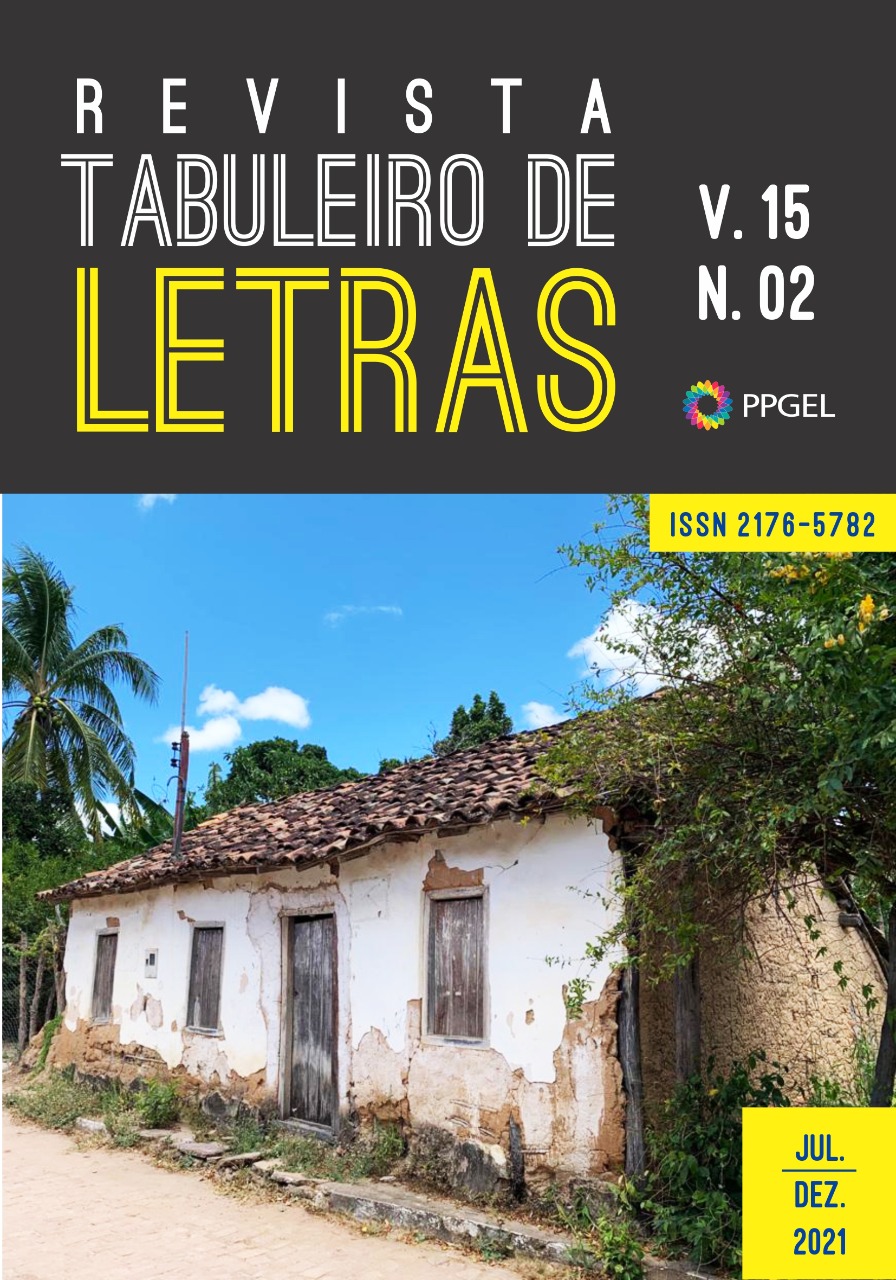Frames em narrativa de boletim de ocorrência: uma análise a partir da Linguística Cognitiva
DOI:
https://doi.org/10.35499/tl.v15i2.11550Abstract
This article analyzes the narrative built in a police report (BO) that deals with an alleged crime committed by three homeless people, seeking to understand how frame construction takes place (LAKOFF, 2000; FILMORE, 1982; DANCYGIER, 2012) around Metropolitan Civil Guard (MCG) and homeless people (HP) characters. For that, we bring up concepts of North American functionalism, such as argument structure and valence, which help in the understanding of the strategies to position a certain participant in a more central or peripheral way in the scene built around the verb. Through qualitative analysis, we identified the activation of frames that praise the conduct of the GCM and criminalize the street condition of the three accused. The results confirm the argumentative power of the narrative, as it served as a basis for the Public Ministry to request the preventive detention of the accused, which was attended by the first instance judge.
Downloads
References
___________. Criatividade: uma visão cognitiva e cultural para o século 21. São Paulo: Giostri, 2020.
ALVES, M. M.; GARCIA, M. D. O. Elementos para o estudo das relações entre controle penal, criminologia crítica e classes sociais. Anais do IV Congresso Internacional de Ciências Criminais, v. IV, 2013.
AMSTERDAM, A. G.; BRUNER, J. Minding the law: how courts rely on storytelling, and how their stories change the ways we understand the law - and ourselves. Cambridge, Massachussets e Londres: Harvard University Press, 2000.
BARROS, J. O. A pessoa em situação de rua e a vida que não merece ser vivida. In: GRINOVER, A. P. et ali (orgs.). Direitos fundamentais das pessoas em situação de rua. Belo Horizonte: Editora D’Plácido, 2016. p. 153–177.
BORBA, F. S. et al. Dicionário gramatical de verbos do português contemporâneo do Brasil. São Paulo: Editora da Universidade Estadual Paulista, 1990.
BRASIL. Resolução STJ/GP n. 10 de 6 de outubro de 2015. Brasil, 2015.
DANCYGIER, B. The language of stories: a cognitive approach. Cambridge: Cambridge University Press, 2012.
DIXON, R. M. W; AIKHENVALD, A. Y. Introduction. In: DIXON, R. M. W; AIKHENVALD, A. Y. (orgs.). Changing valency: Case studies in transitivity. New York: Cambridge University Press, 2010.
FERRARI, L. Introdução à linguística cognitiva. São Paulo: Contexto, 2011.
FILLMORE, C. Frame semantics. In: KOREA, L. S. (orgs.). Linguistics in the morning calm. Seoul: Hanshin Publishing, 1982. p. 111–137.
FLICK, U. Qualidade na pesquisa qualitativa. Porto Alegre: Artmed, 2009.
FURTADO DA CUNHA, M. A. Estrutura argumental e valência: a relação gramatical objeto direito. Gragoatá, v. 21, p. 116–131, 2006.
FURTADO DA CUNHA, M. A.; COSTA, M. A.; CEZARIO, M. M. Pressupostos teóricos fundamentais. In: FURTADO DA CUNHA, M. A.; OLIVEIRA, M. R.; MARTELOTTA, M. E. (orgs.). Linguística funcional: teoria e prática. São Paulo: Parábola Editorial, 2015. p. 21–48.
GIBBONS, J. Forensic linguistics: an introduction to language in the justice system. Oxford: Blackwell Publishers, 2003.
GIVÓN, T. Grammatical relations: a functionalist perspective. Amsterdã/Filadélfia: John Benjamins Publishing Company, 1997.
HOUAISS, A.; VILLAR, M. S. Dicionário Houaiss da Língua Portuguesa. Rio de Janeiro: Objetiva, 2009.
LAKOFF, R. T. The language war. Berkeley e Los Angeles: University of California Press, 2000.
LAKOFF, G. The Political Mind: Why You Can’t Understand 21st Century Politics with an 18th Century Brain. New York: Viking, 2008.
LAKOFF, G.; JOHNSON, M. Metáforas da vida cotidiana. Campinas e São Paulo: Mercado das Letras e Educ, 2002 [1980].
LOPES JR., A. Direito processual penal. São Paulo: Saraiva, 2014.
PAYNE, T. Describing Morphosyntax. Cambridge: Cambridge University Press, 1997.
RESENDE, V. M. “Não é falta de humanidade, é para dificultar a permanência deles perto de nosso prédio”: análise discursiva crítica de uma circular de condomínio acerca de “moradores de rua” em Brasília, Brasil. Discurso & Sociedad, v. 2, n. 2, p. 422–444, 2008.
RIBEIRO, M. R. A estrutura potencial do gênero do boletim de ocorrência sobre crimes de linguagem contra a honra. Cadernos do IL, v. 48, p. 120–143, 2014.
TURNER, M. The literary mind: the origins of thought and language. Nova Iorque: Oxford University Press, 1996.
Downloads
Published
How to Cite
Issue
Section
License
Autor(es) conservam os direitos de autor e concedem à Revista o direito de primeira publicação, com o trabalho simultaneamente licenciado sob a Licença Creative Commons Attribution que permite a partilha do trabalho com reconhecimento da autoria e publicação inicial nesta Revista.

















